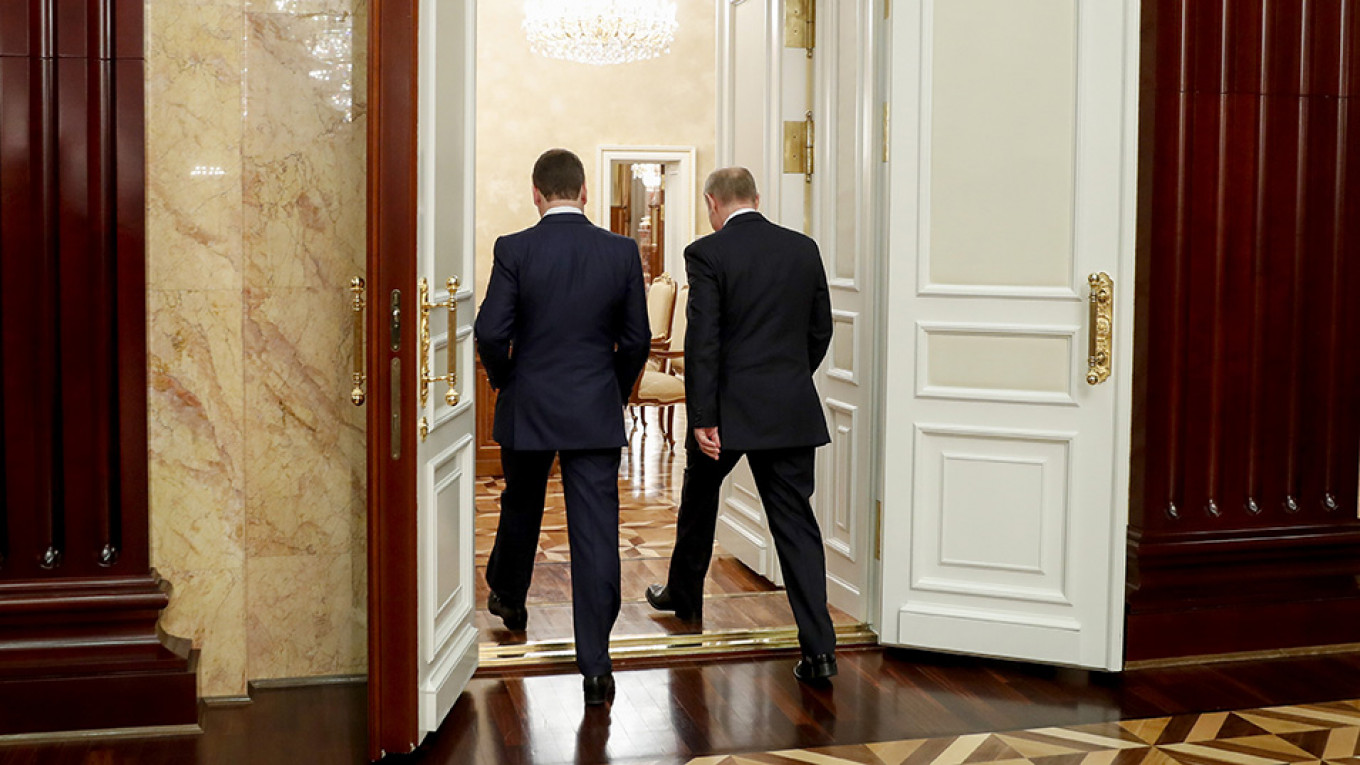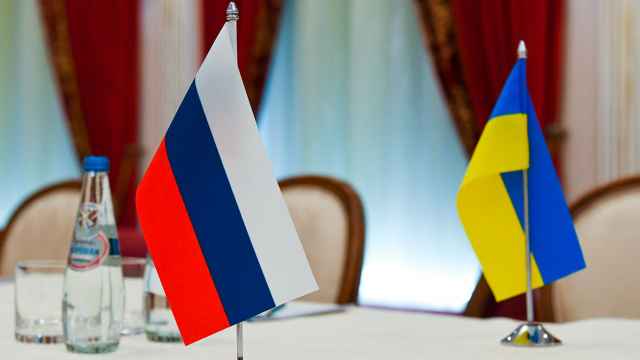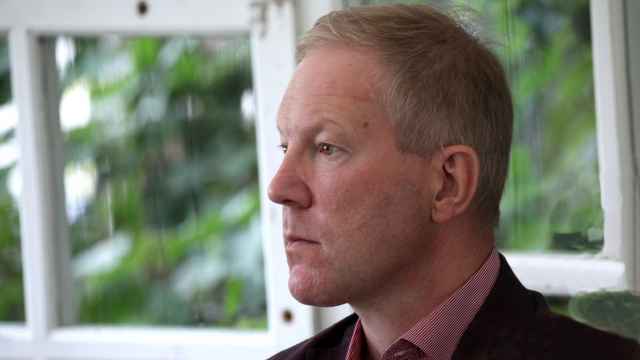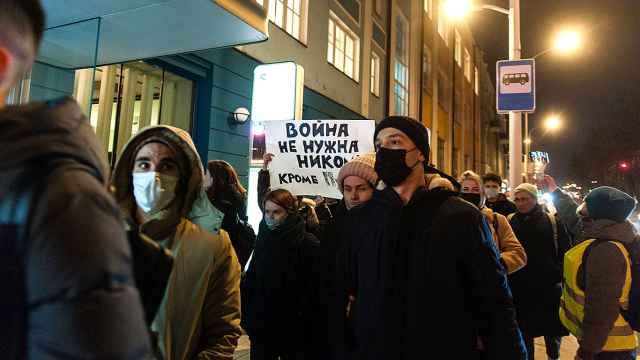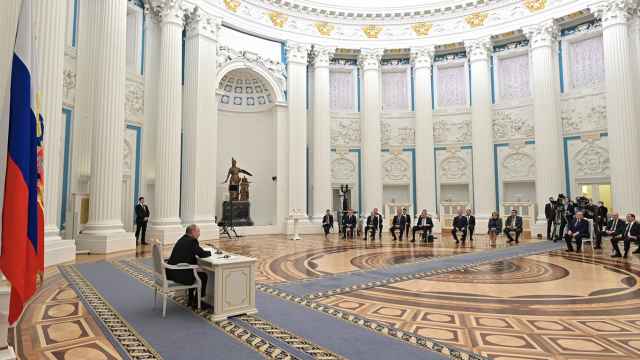“Party like a Russian — end of discussion,” go the lyrics to a song Robbie Williams was asked not to sing at the opening of the 2018 soccer World Cup in Moscow. Russian President Vladimir Putin is acting out the line: Just five days after he announced a major constitutional reform and formed a working group to design it, the proposed amendments were submitted to parliament.
If there’s any discussion after this, it can only be a farce. Putin is the principal source of Russia’s law and legal practice, and any further changes can only mean that he’s changed his mind about something or is indulging underlings by letting them alter insignificant details.
The amendments as submitted, however, create more questions than they answer. While on paper they would strengthen Russia’s feeble system of checks and balances, they still allow for an extremely powerful presidency and even expand some of its powers. This makes Putin’s plan for keeping substantial power after 2024, when his presidential term ends, dependent on his successor — a problem Putin could have solved with the amendments but evidently chose not to.
Hence the questions. Why not? Has Putin already decided on a successor? Who will it be? Why rush the amendments so? Is the parallel government reshuffle really linked to the constitutional overhaul? Why create the impression of empowering institutions that still will end up doing the president’s bidding?
Only a few of these have relatively logical answers, suggesting that Putin also adheres to the next line in that Robbie Williams song: “Dance like you’ve got concussion, put a doll inside a doll.”
The amendments strongly suggest that Putin will give up the presidency for good after 2024. “The same person cannot hold the post of president of the Russian federation for more than two terms,” the proposed text says. This drops the old formula, “two consecutive terms,” which allowed Putin to return to the presidency in 2012 after a four-year hiatus. Some legal commentators have suggested that the amendments may be tweaked to wipe the slate clean, allowing Putin to run again, but that would be the kind of brute-force move that Putin has eschewed, unlike the authoritarian lifetime rulers of some Central Asian states and Belarus.
Putin’s proposals give the directly elected lower house of parliament the power to confirm not just the prime minister, as the current version of the constitution dictates, but all members of the cabinet, except those dealing with security and foreign policy. These ministers are to be appointed by the president “after consultations” with the upper house of parliament, which consists of regional representatives.
This appears to be a significant redistribution of presidential powers in favor of the legislature. But Putin’s proposal gives the president sole discretion to dismiss the prime minister and cabinet members, undermining the importance of the parliamentary confirmation procedure and making sure the president will never have to work with a cabinet he doesn’t control, as regularly happens in France.
At the same time, the president, according to the amendments, is to get significant new powers: He or she would be able to fire top judges for misbehavior, with the consent of the parliament’s upper house. Given another proposal — that any bills passed by parliament be subject to review by the Constitutional Court before the president signs them into effect — this potentially expands the president’s veto power, making it impossible for legislators to overrule.
The proposed redistribution of powers still leaves Putin with a number of post-2024 options, including the prime ministership, the parliament speaker’s job and the leadership of the ruling party. But in all these positions, Putin would need to defer to others in the system, especially to the president, to an even greater extent than he did between 2008 and 2012, when Dmitry Medvedev held that office.
Putin’s amendments would enshrine in the constitution the State Council, which today exists as a presidential advisory body that includes Russia’s regional governors. The council is to “determine the main directions of domestic and foreign policy," which would make running it a suitable role for a kind of president emeritus, such as Nursultan Nazarbayev in Kazakhstan.
The amendments don’t say who will head up the State Council, but they do make it clear it is to be formed by the president. So if this is Putin’s post-2024 fallback, it is, again, dependent on the person chosen to succeed him.
One can understand why Putin is afraid to weaken the presidency. He is genuinely convinced, and has said so time and again, that Russia cannot be run without strong presidential power. He is also conscious of his mortality. If he creates a system in which the president emeritus, or whatever post he occupies, has more formal powers than the president, the entire system of governance may be destabilized when he’s gone — and thus open to the destructive influence of what he sees as foreign foes.
It also makes certain sense to play to the ambitions of the officials and institutions whose authority he has systematically usurped in his 20 years in power, such as the parliament and the Constitutional Court. They get a more prominent role in running the country — a way to stroke their vanity and ensure loyalty — though the president keeps control of the strings.
But two unknowns make the new configuration conspicuously incomplete: Putin’s specific vision for his continued role and the name of his chosen successor. Medvedev’s resignation as prime minister last week and the appointment in his place of Mikhail Mishustin, the apolitical but effective tax-service chief, open up the selection process — with not even a hint from Putin on whom he might be considering.
Putin’s preference for stability, his resistance to sweeping changes in the formal governance system and his reluctance to fire people who have proved their loyalty are well known. The speed of these surprise reforms and the boldness of personnel decisions aren’t at all typical. On Monday, Putin replaced a long-time ally, Yuri Chaika, as prosecutor general. The new appointee, Igor Krasnov, is a 44-year-old top investigator who, like Mishustin, skips a few steps of the career ladder to take the new job.
I can’t escape the feeling that the public and experienced Kremlin-watchers alike are in the dark about what triggered Putin to start the shakeup four years before he is to leave office. This may or may not become clearer as the changes are rolled out.
But the more things change in Russia, the more they stay the same. Just as under Putin’s predecessor, Boris Yeltsin, who spent most of his last three years in power looking for a suitable replacement, the guessing games and intrigues of the next few years will be focused on personalities, even if Putin’s selection process probably will be less haphazard than Yeltsin’s.
“It takes a certain kind of man with a certain reputation/To alleviate the cash from a whole entire nation,” goes the Robbie Williams song. Putin will be looking for someone who can be as good at it as he’s been.
This article was first published by Bloomberg.
A Message from The Moscow Times:
Dear readers,
We are facing unprecedented challenges. Russia's Prosecutor General's Office has designated The Moscow Times as an "undesirable" organization, criminalizing our work and putting our staff at risk of prosecution. This follows our earlier unjust labeling as a "foreign agent."
These actions are direct attempts to silence independent journalism in Russia. The authorities claim our work "discredits the decisions of the Russian leadership." We see things differently: we strive to provide accurate, unbiased reporting on Russia.
We, the journalists of The Moscow Times, refuse to be silenced. But to continue our work, we need your help.
Your support, no matter how small, makes a world of difference. If you can, please support us monthly starting from just $2. It's quick to set up, and every contribution makes a significant impact.
By supporting The Moscow Times, you're defending open, independent journalism in the face of repression. Thank you for standing with us.
Remind me later.



